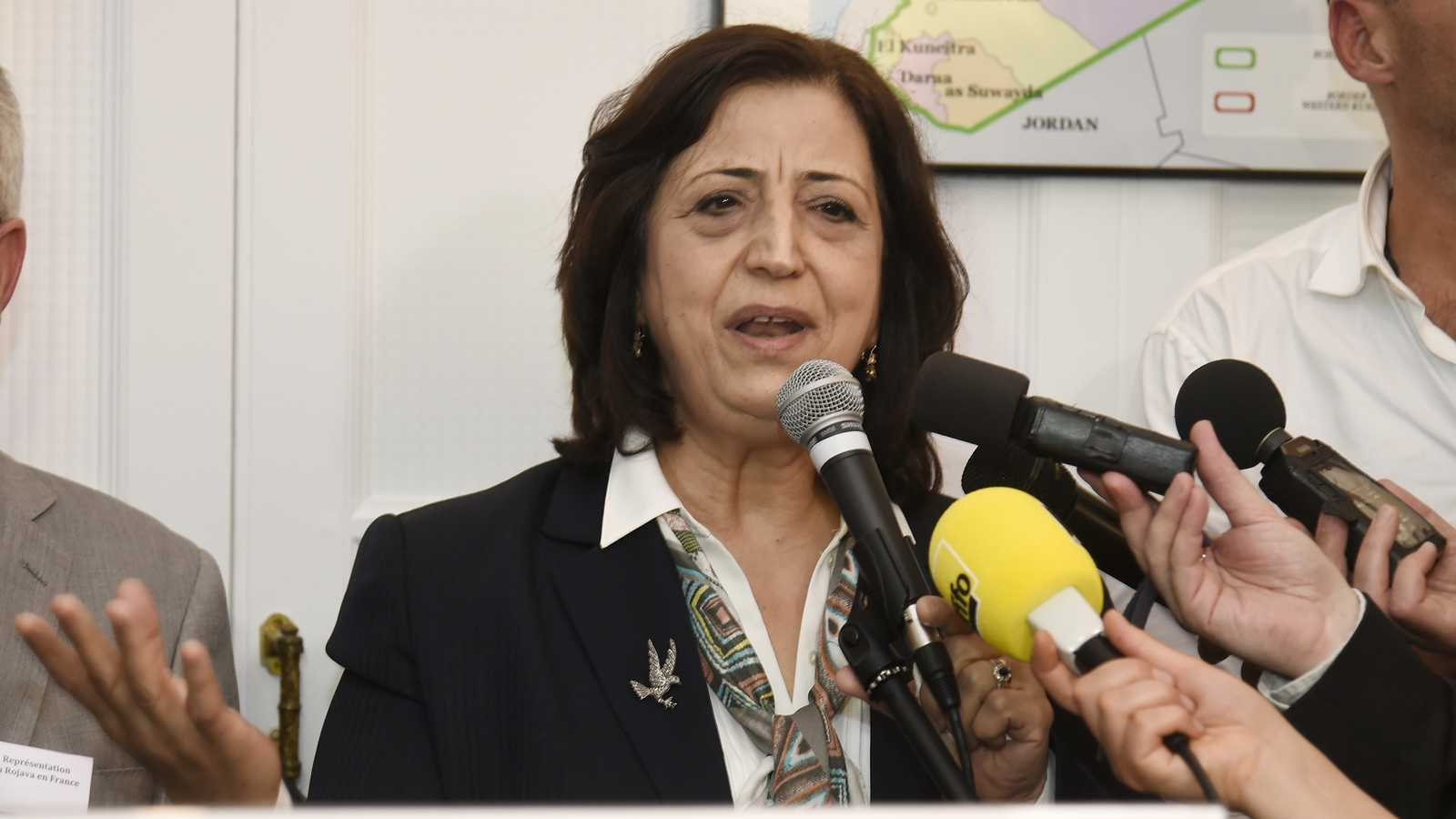
SDF commander Mazlum Kobane told Al-Monitor last month he hopes the Biden administration will double the US troop presence in northeast Syria.
Northeast Syria’s Kurdish-led administration is calling on US President-elect Joe Biden to formally recognize its autonomous status within Syria.
Sinam Mohamad, the Washington envoy of the political body affiliated with the Kurdish-led Syrian Democratic Forces (SDF), made the appeal during a think tank event alongside two former US officials earlier this month.
“We call on the Biden administration to recognize North and East Syria,” Mohamad said, speaking at the event alongside former US envoy for Syria James Jeffrey and Michael P. Mulroy, a former deputy assistant secretary of defense for the Middle East.
The statement is the latest sign the SDF is seeking new footing with its military backers in Washington more than a year after the now-departing Trump administration allowed Turkey to attack the Kurdish-led forces.
The SDF, an alliance of Syrian militias led by the Kurdish People’s Protection Units (YPG), has served as the main ground force supported by the US-led international military coalition to defeat the Islamic State in Syria.
In the wake of its successes on the battlefield, the YPG’s political affiliate, the Democratic Union Party (PYD), took charge of administrative structures to manage the liberated swath of the war-torn country. But US officials have long said they never offered to support the PYD’s political project, which envisions a decentralized Syria with grassroots engagement at the level of local councils.
“We have a military partnership with the US. And for that, we ask to translate this military partnership into a political one, so the administration of northeast Syria will be recognized politically as a part of a decentralized Syria. This is what we need,” Mohamad told Al-Monitor by phone Tuesday.
“We need this recognition so as to be supported on humanitarian issues [and] development projects, and so on,” she said.
In early 2018, Trump administration officials unveiled a plan to leave troops in Syria alongside the SDF after the Islamic State’s defeat in order to passively block Iran’s access to the Levant and to prevent President Bashar al-Assad’s access to his country’s lucrative oil fields.
But lingering US military support for the YPG infuriated NATO ally Turkey, which publicly insists the group is inextricable from the Kurdistan Workers Party (PKK), a designated terrorist organization that has waged an intermittent insurgency against Turkey’s government since 1984.
Similarly, the Assad regime has repeatedly refused to accept the northeastern region’s autonomy, demanding it return to centralized Baathist rule. Damascus has accused the autonomous administration of separatism and vowed to retake the country’s northeast by force.
Officials of the autonomous administration insist their region should remain a part of Syria, a point Mohamad reiterated earlier this month.
Critics of the autonomous administration have questioned its democratic credentials, pointing to its reported ties to the PKK and the Assad regime.
Proponents credit the SDF with defeating the Islamic State and continuing to oversee prisons and internment camps housing tens of thousands of people captured from the collapsing jihadi caliphate, including dangerous former fighters. The administration has also made women’s rights one of its central priorities in territories under SDF control.
Jeffrey urged the autonomous administration to remain open to negotiations with Damascus during an interview with the Asharq Al-Awsat newspaper last week.
Jeffrey also recommended the SDF maintain its military autonomy from the Assad regime without declaring outright independence, while saying the YPG should not stop selling oil to Damascus and should avoid developing further ties with the PKK.
“The Biden team is not likely to rock the boat on Syria, especially if it comes at the expense of rebooting a relationship with Turkey,” said Nicholas Heras, director of government relations at the Institute for the Study of War. “The most that the SDF could hope for from the Biden team would be a US insistence that the autonomous administration be given a transitional authority in northeast Syria until UNSCR 2254 could be implemented,” he said. UN Security Council Resolution 2254 established a road map for the peace process in Syria.
SDF commander Mazlum Kobane told Al-Monitor’s Amberin Zaman in November that he hopes the Biden administration will at least double its troop presence in northeast Syria and leave the forces there until a political solution to the conflict is reached. He also requested greater US political support for the autonomous administration, and said the SDF is willing to approach peace talks with Turkey without any preconditions.
 Eurasia Press & News
Eurasia Press & News

